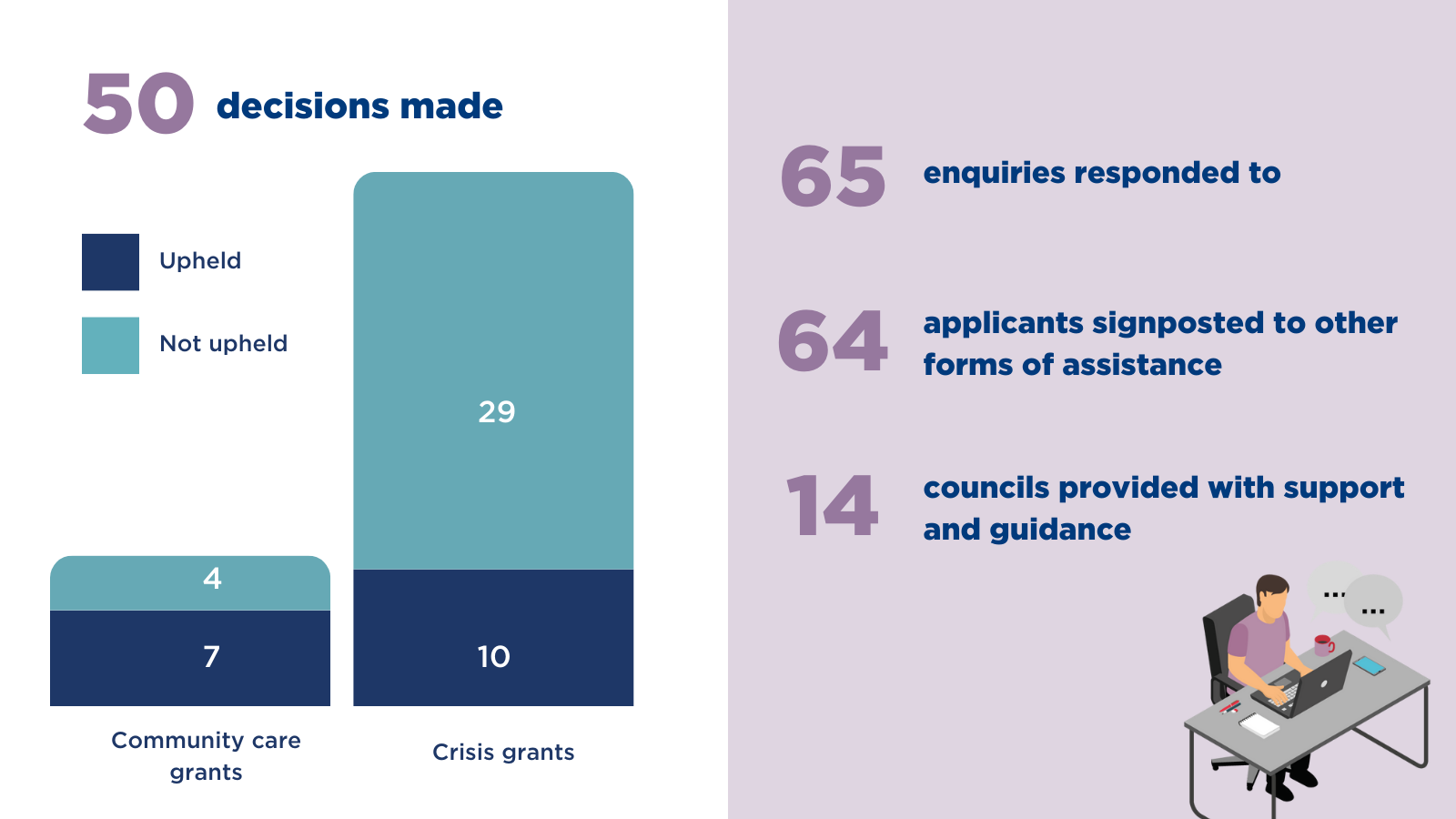
During February we:
- responded to 65 enquiries
- made 50 decisions
- 11 community care grants
- 39 crisis grants
- upheld 64% of community care grants and 26% of crisis grants
- signposted an additional 64 applicants to other sources of assistance. 64% of these were calling us instead of their local council in error. Six applicants told us that they had issues getting in touch with their council as there was no freephone number, or due to difficulties getting through.
- received 14 enquiries from local council liaison contacts seeking advice on the guidance.
- raised five new issues under level one of the Support and Intervention Policy. These included not following the statutory guidance correctly, incorrectly interpreting the available information and inquisitorial failure.
Case studies
Meeting the need
C requested an independent review of the council's decision on their crisis grant application. C had recently returned to the UK, and were waiting on their first payment of Universal Credit being made after making a new claim. They were without funds for essentials.
The council declined the application as C did not provide evidence of their address. C requested a first tier review, and the council accepted that C was sofa surfing, and awarded £112.84 based on 30% of the income support rate.
We reviewed the council's case file and spoke with C and the DWP for further information about their circumstances. C confirmed that they had applied to the council for housing, and were currently sofa surfing with a friend as they had no accommodation. C told us they felt the award amount was insufficient and they felt it was discriminatory as it did not take into account their dietary needs due to health conditions. We changed the council decision and calculated the award at 60% of the Income support rate as per section 7.24 of the guidance. We assessed that this was appropriate to meet the needs described by C. We provided feedback to the council regarding the incorrect interpretation of information when calculating the award, written communications and that the timescales were not met.
You can find more case studies in the searchable directory on our website.